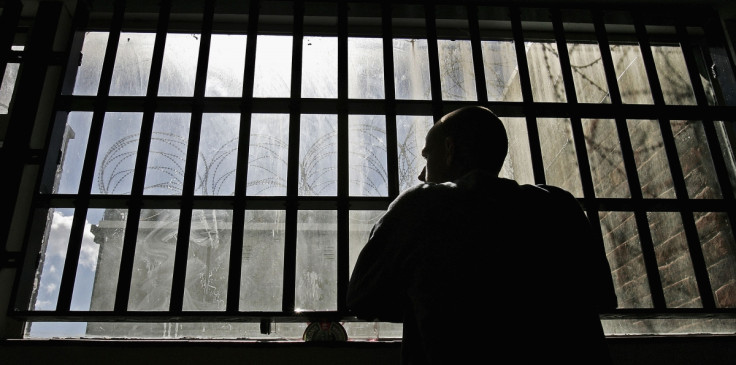Murderers and sex offenders among 1,000 criminals allowed home for Christmas
The figures for last year revealed by the Ministry of Justice – provoking anger and disbelief.

Nearly 1,000 criminals – including murderers, kidnappers and sex offenders – were allowed out of prison on Christmas Day last year, new figures reveal. Some 973 offenders were let out to spend the day with their family and friends, Ministry of Justice figures show.
Among them were 200 people jailed for violent crimes including 61 murderers, four kidnappers and 12 people who were guilty of manslaughter.
The figures, revealed in a Parliamentary Question by the Conservative MP Philip Davies, were heavily criticised by a charity representing murder victims.
Rose Dixon, chief executive of SAMM [Support After Murder And Manslaughter], a charity which supports the families of those killed, hit out at the revelations.
She told the Press Association: "It beggars belief because you are letting killers out, I just find it incredible and I'm sure my members would. Their loved ones can't come home for Christmas, and so why should these people be allowed home to spend Christmas with their families?
"The vast majority of our members say that when you get a life sentence for murder it should mean life. They shouldn't get to leave.
"We are fed up with hearing about the human rights of the offenders, what about the human rights of the victims and the victims' families? The first human right is the right to life and they have taken a life, so how can they expect to have their human rights respected?"
She said Christmas is the hardest time of the year for families of murder victims, and many will be appalled to think the killers are allowed out to enjoy turkey and presents at home.
Dixon said: "We do a memorial service in December at St Martin in the Field in London for bereaved families, and that is all they have at Christmas.
"That's all they've got – to be able to light a candle for their loved one. So why should the killers be able to go home to their families?"
Responding to the Parliamentary Question, Justice Minister Sam Gyimah said: "Public protection is our priority. All offenders must meet strict criteria and pass a full-risk assessment before being considered for release on temporary licence (ROTL).
It beggars belief because you are letting killers out, I just find it incredible and I'm sure my members would. Their loved ones can't come home for Christmas, and so why should these people be allowed home to spend Christmas with their families?
"ROTL is used to prepare prisoners for their eventual release from custody and helps them build and maintain family ties, which is proven to help reduce reoffending.
"Consideration will therefore be given to allowing eligible prisoners to take ROTL that coincides with family celebrations and religious holidays of particular significance, including Christmas."
Raising the issue in the House of Commons, Davies said: "I would have hoped it might have gone without saying that the victims of those murdered will never be able to spend Christmas at home with their families again.
"And perhaps the Government might reflect on what the families of those victims think when those murderers are allowed out to enjoy a family Christmas at home when they will never have that experience again.
"Perhaps the Government might tell prisoners that if they want to spend time at home with their families at Christmas they shouldn't commit the crimes in the first place that got them sent to prison."
Responding to the point, David Lidington, leader of the House of Commons, said: "All but a very small number of prisoners are going to be released one day, either at the end of the sentence or on licence.
"And I don't think it's unreasonable, in the context of people who are approaching the end of a sentence, to be looking at ways in which to make it possible for them to adjust to society outside prison and to earn a living, take family responsibility and hopefully pursue a better path.
"But such a step needs to be looked at in the context of overall sentence planning and should not be a way in which to soften the necessity for the punitive aspect of a prison sentence which the public, rightly, expect judges and the prison service to see enforced."
© Copyright IBTimes 2024. All rights reserved.





